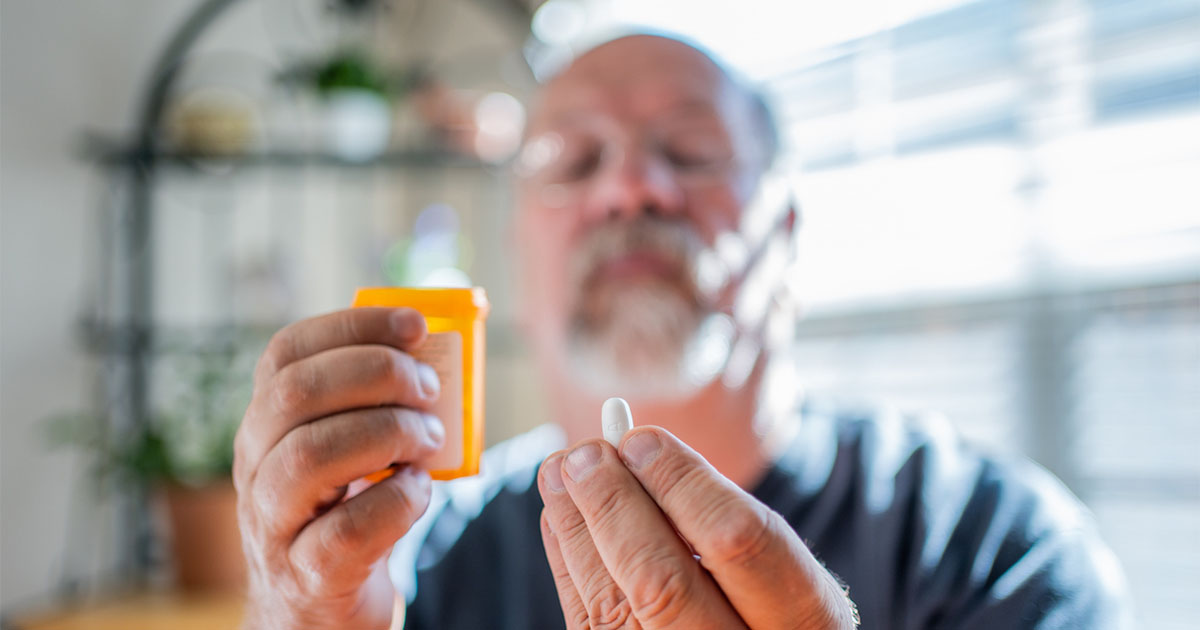Much has already been written about the innovative, and award-winning, Super Six model of diabetes care in south-east Hampshire and Portsmouth (Kar, 2011; Kar, 2012; Kar and Goulder, 2013; Kar et al, 2013). Any new model of care requires enthusiastic individuals who are willing to change traditional ways of working to achieve the best for the patient. Why, for instance, do we have people attending as outpatients once or twice a year, sometimes waiting hours to see a healthcare professional they have never seen before, and then being given an appointment to return many months later for their next follow-up? Many of us witnessed that 20 years ago, and it didn’t work well then. Why are we still doing it? The “Super Six” model of diabetes care challenged those ideas through collaboration between primary care and specialist services.
Background to the Super Six
In the Super Six model, specialist services were redefined away from their traditional hospital base to supporting primary care through education, telephone and email support, practice visits from the specialist team and employment of specialist nurses in primary care. Two east Hampshire diabetes specialist nurses (DSNs) had already shown how successful this could be. The plan was to roll it out to Portsmouth City practices with the backing of the clinical commissioning group. We were two DSNs with a good deal of experience between us and felt up to the challenge. We were appointed as a full-time job share to be employed by Solent NHS Community Trust but working as part of the Portsmouth Community Diabetes Team, comprising Dr Iain Cranston, Professor Mike Cummings, Dr Partha Kar and Dr Darryl Meeking.
So what makes it so Super? It is a complete new way of working. The role of the DSN as mentor has been found to be effective in the hospital setting (Modic et al, 2012) but is relatively new in primary care. There are models of DSNs employed by secondary care and working as members of the hospital team, there are intermediate services where the DSN is often employed by the Community Trust and takes referrals from primary care, and there are models where the DSN works across several practices. Doubtless there are other approaches still.
The Super Six model focuses on education in, rather than referral out of, practice. Joint consultations and follow-ups are arranged in the practice, with the DSN sharing specialist knowledge during the session with the patient and the healthcare professional. Email, text and mobile contacts are also encouraged (see Figure 1). If the comments received from healthcare professionals are anything to go by, it is a huge success.
“I have found the team extremely helpful and a great asset. Their knowledge and support has been, and continues to be, of great value.” –Comment from one practice nurse
Starting out
The Super Six – situations that still warrant referral to secondary specialist care – are as follows.
- Inpatient diabetes: Looking after patients with diabetes – admitted anywhere in hospital, for any reason.
- Diabetes and pregnancy.
- Diabetes and foot ulcers.
- Diabetes and kidney disease.
- Poorly controlled type 1 diabetes and diabetes in adolescents.
- Diabetes and insulin pumps.
A baseline assessment was undertaken by consultants and GPs, with the agreement of patients. This identified individuals with diabetes who could be discharged to primary care. Each practice was provided with a colour-coded potential discharge sheet to review. The practice shared the responses with the community DSNs; those marked green could be managed in the practice, amber would need support from the DSN, and those the practice felt were too complex to manage in house were tagged red. The role of the community DSN was to work with the practices on these lists to ascertain who could effectively be managed in primary care, reduce referrals and help keep people out of hospital.
Feedback and evaluation
Healthcare professional evaluation
The Portsmouth DSN service was highly regarded by primary care staff. Questionnaires were provided (see Figure 2) and all who completed the questionnaires wanted the service to continue. Some specific comments from primary care health professionals included the following:
- “I am now able to receive prompt advice and support as necessary.”
- “Patients are happy having some specialist input within their own practice.”
- “I feel much more confident to tackle the more complex diabetes issues now.”
- “The DSN has supported and mentored me through a quick learning curve!”
- “Thank you all for providing me with such an expert source.”
- “We have found them to be invaluable in supporting us in managing our diabetes patients and improving our confidence.”
- “The patients are very happy with the service. Many have commented on the continuity and prefer to be seen by the same specialist and practice nurse.”
- “As a practice nurse I feel supported and am learning a great deal.”
- “Each patient is given a very ‘personalised’ approach to their diabetes and patients get confidence from review by the same person.”
- “Patients certainly like surgery-based care. The DSN is amazing. We have learned loads.”
- “Working with a DSN has changed my whole career and the lives of many of my patients. Extremely good service.”
People with diabetes
Although data collection from people with diabetes was run only over a 3-month period, and numbers were therefore small, we feel that it was still a worthwhile exercise to seek their views on the service. Solent NHS Trust provided evaluation forms and collated the results. The questions asked were as follows:
- Based on your experience of the service today, please tell us how likely you would be to recommend us to friends and family if they needed similar care or treatment?
- How good were staff you saw today at: Being Polite?
- How good were staff you saw today at: Making you feel at ease?
- How good were staff you saw today at: Listening to you?
- How good were staff you saw today at: Giving you enough time?
- How good were staff you saw today at: Being professional?
- How good were staff you saw today at: Explaining your condition and care/treatment?
- How good were staff you saw today at: Involving you in decisions about your care/treatment?
- How good were staff you saw today at: Providing information in a way that you understood?
- How strongly do you agree or disagree that: The department is clean and tidy.
- How strongly do you agree or disagree that you have confidence in the care/treatment you received today?
- How strongly do you agree or disagree that staff told you who to contact if you were concerned about your condition.
Again the results were encouraging, with broadly positive feedback (see Figure 3), as well as specific comments indicating that individuals felt engaged in the process.
“I appreciate that someone looked at my well-being and diabetes as a whole so that we can plan medications and actions to improve my health in the long term and improve my quality of life.” –Comment from person with diabetes on survey form
“I was listened to and got a lot of information and it made me feel more positive towards my diabetes problems.” –Comment from person with diabetes on survey form
Clinical results
What was unforeseen was the improvements in HbA1c that were found. In retrospect, it would have been a valuable exercise to audit the implementation of the DSN role in Portsmouth Community more rigorously. As it happened, the investigation of results was triggered by feedback from GPs and nurses demonstrating great improvements in HbA1c over the 18 months in which the two DSNs were in post. Results from a sample of practices are presented in Figure 4, while an illustrative quote is presented below:
“Thirty-year-old person with type 2 diabetes on insulin. Now feeling far more motivated and grateful of the support she’s received. HbA1c down from 95 to 83 mmol/mol.” –Comment from practice nurse on survey form
Costs
Since implementation of the Super Six in November 2011, starting with 53 GP practices, the model has now extended to a total of 83 practices (representing 100% practice coverage across two clinical commissioning groups in the areas). More than 95% of people with diabetes (1372 individuals, at the time of writing) have been discharged from general diabetes secondary care clinics. With the cost of a follow-up appointment being approximately £99 (unpublished local data), this represents a saving of around £90 000 in a year. In addition, new “general diabetes” referrals have reduced from 15 a month to one a month, leading to further savings that have helped the shift of resources from a traditional hospital setting into the community. For instance:
“Fifty-one-year-old man with mental health issues. Blood sugar [HbA1c percentage] now in single figures following adjustment of insulin regimen and joint consultation with community pharmacist, who is piloting automated alarm system to remind him to check blood sugars and take medication.” –Comment from practice nurse on survey form
The high value of specialist nurses has recently been emphasised in a variety of roles (Health Service Journal, 2015). Our findings in Portsmouth City certainly confirm not only the value but the acceptability of the role to all concerned. As an example:
“Friendly, personalised, professional service.” –Quote from person with diabetes on survey form
Lessons learnt
The success in Portsmouth rested on employment of two very experienced DSNs working in the community but working as part of a consultant-led specialist team. This excellent working arrangement enabled prompt support for the DSNs. An example is presented in Box 1.
We regularly found that people who had previously defaulted on their clinic appointments, especially people with type 1 diabetes, started to request to attend (an example is presented in Box 2). Feedback from them and healthcare professionals reported that they felt they still got specialist advice but nearer to home and much more flexibly than outpatients at the hospital. Flexibility is crucial. We could visit the practices as requested rather than on set days or dates.
“Being able to access this specialised treatment at my own GP surgery means less stress of travel, familiar surroundings do help, and no parking fee!” –Quote from person with diabetes on survey form
Summary
It is a terrible shame that education is often the first thing to be cut in times of financial hardship. We feel that this is poor practice. The implementation of the Super Six, we think, illustrates the value of education and support. Portsmouth City now has primary care teams that are cost-effective, achieving patient satisfaction and clinical outcomes, and leading to engaged and satisfied primary care teams.





SGLT2 inhibitors show greater cardiovascular effects in older versus young people, whilst GLP-1 RAs are more effective in younger people.
1 May 2025